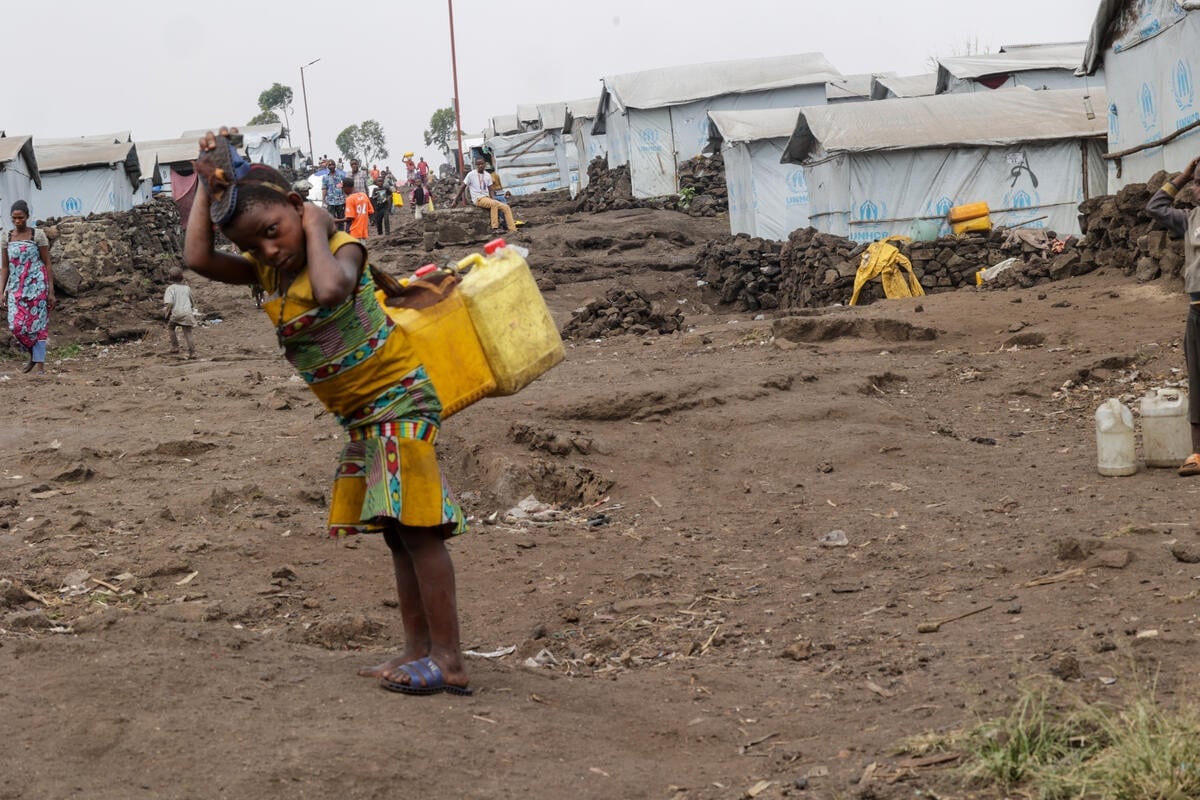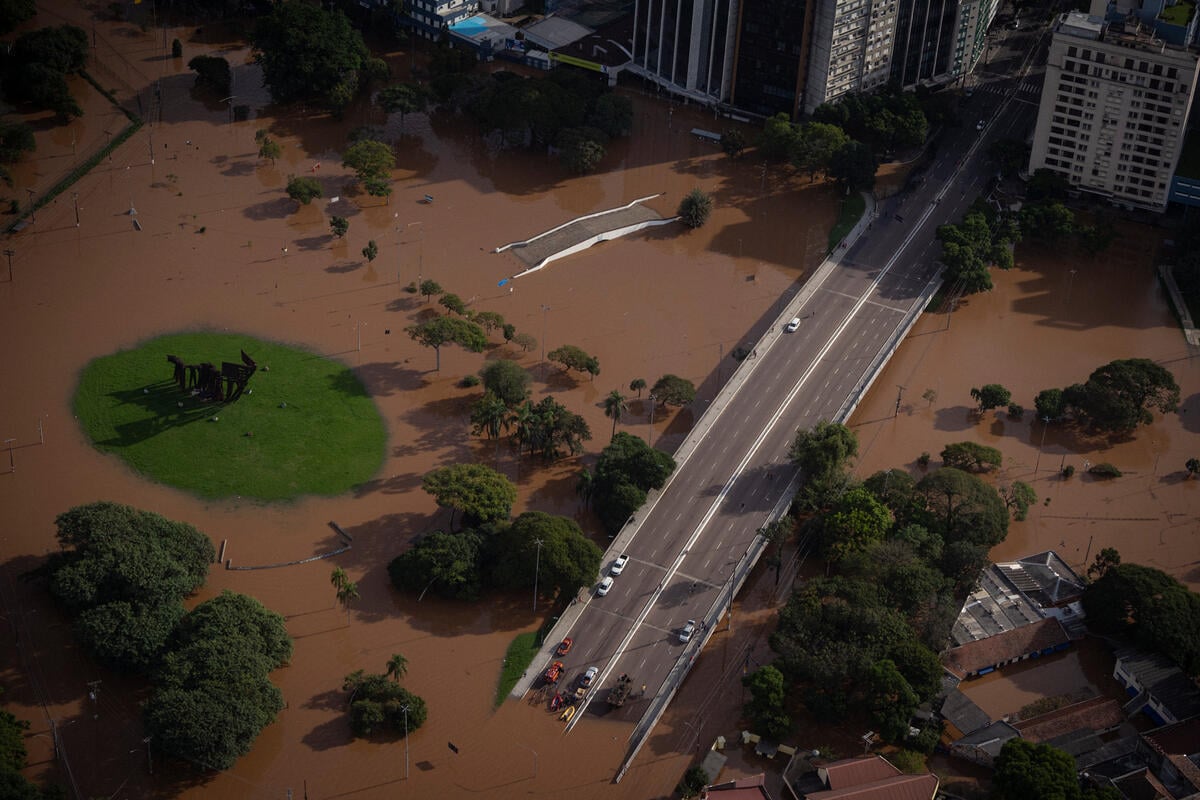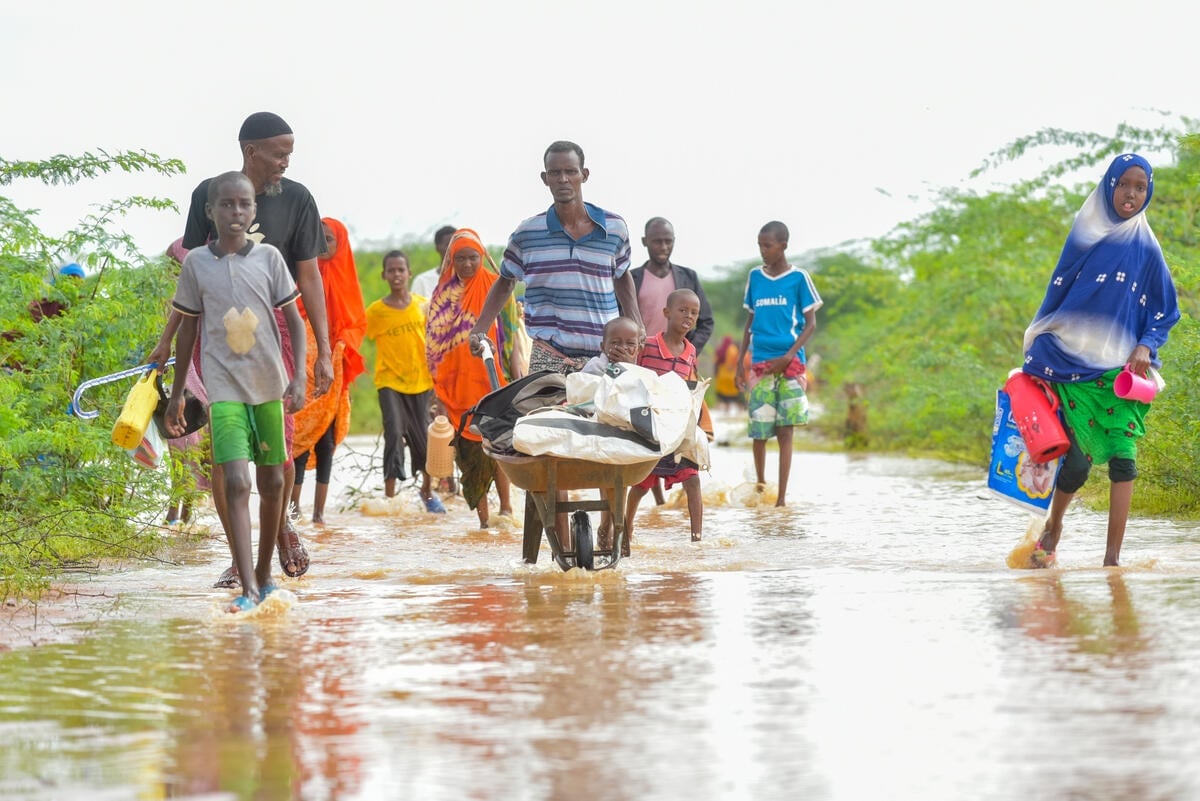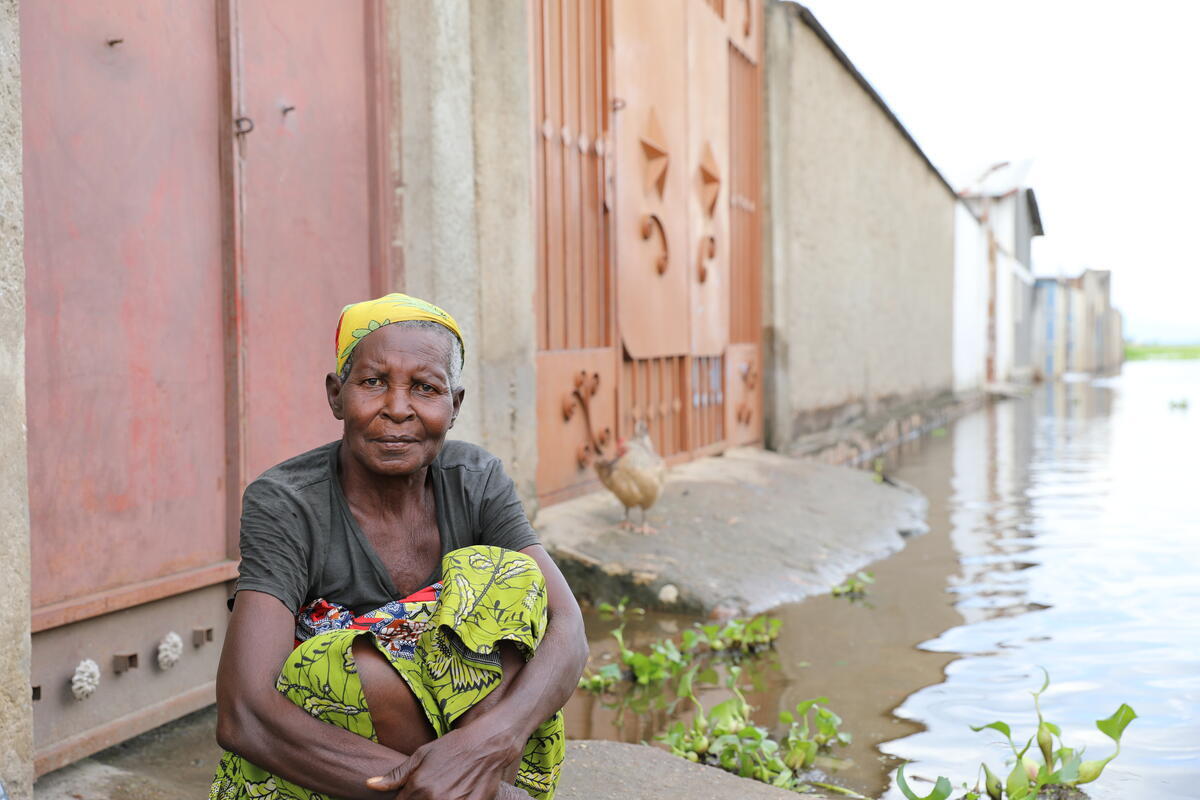Cholera epidemic among refugee and host communities in Tanzania claims 31 lives, situation worsening
Cholera epidemic among refugee and host communities in Tanzania claims 31 lives, situation worsening
With refugees still fleeing from Burundi into neighbouring countries, the cholera epidemic declared by the Tanzanian government this week in the Kigoma area of Lake Tanganyika where many of the refugees are, has become a new, worrying, and growing additional complication.
Some 31 people have died from the disease so far, including 2 locals and 29 refugees. The deaths have been in the port town of Kigoma on Lake Tanganyika, in the nearby villages of Kagunga and Nyarugusu, and among people being transported by ferry from Kagunga to Kigoma.
The epidemic is still worsening. To date some 3,000 cases have been reported, and numbers are increasing at 300-400 new cases per day, particularly in Kagunga and nearby areas. At this rate, further cases can be expected over the next days and until the situation can be brought under control. Preventive water and sanitation measures are essential, and the first two days of treatment are especially important, to rehydrate people.
Cholera is transmitted through drinking contaminated water and food. While an epidemiological assessment is needed to determine the precise origin, the overcrowded and unsanitary situation in Kagunga, a remote lakeside village with limited sanitation, and consumption of water from the lake itself is believed to be the cause. Parts of the area are cholera endemic.
UNHCR is working with the Tanzanian Ministry of Health and leading a team response with our fellow UN agencies and NGO partners to respond to the outbreak with emergency health, water and sanitation measures. These include additional supplies of safe water, and airlifting medicines, medical supplies, personal protective gear, water supply equipment and other related items related supplies for the refugees and for government health facilities.
Affected refugees are being treated at newly established Cholera Treatment Centres run by International Rescue Committee in Kagunga and Kigoma and by the Tanzanian Red Cross in Nyaragusu refugee camp. A Medecins Sans Frontieres team has also now arrived on site and is working to expand and increase capacity of the centres. Together with the Government and our UN and NGO partners, we are providing oral rehydration solutions, soap and water purification tablets, and increasing hand-washing facilities. UNHCR has supported the transport of over 15,000 people from Kagunga to Nyagurusu refugee camp in Kasulu, primarily by ship and then bus. In Kagunga, refugees have now access to 8 litres of clean water per day and 94 latrines have been installed.
While a priority is to get the refugees out of Kagunga because of the dire situation, we are still working on better access to safe water and hygiene promotion there. Public health messages are being used to emphasize hygiene promotion. This is being done with the help of community leaders and volunteers, and at water distribution and hand washing points. The same measures are being put in place for the local community in the surrounding areas. In addition we are decontaminating ships, buses and vehicles ferrying refugees. Hand washing stations have been established on the ships.
More than 64,000 Burundian refugees have fled to Tanzania since the beginning of May. The majority have arrived in Kagunga peninsula, which is surrounded by a steep mountain range on the Tanzanian side. Including this total, there are now around 100,000 Burundian refugees in Tanzania, Rwanda, Uganda and Democratic Republic of the Congo. And even without the cholera outbreak, the pressure on the surrounding region is growing. With fears that the number of refugees could double over the next six months UNHCR and our partners are today unveiling a Regional Refugee Response Plan that aims to protect and assist up to 200,000 Burundian refugees in these countries (see UNHCR's Press Release on funding appeal).
For more information on this topic, please contact:
- In Tanzania, Celine Schmitt on mobile +243 81 700 94 84 and +255 687 850 066
- In Nairobi (regional), Terry Ongaro on mobile +254 735 337 608
- In Geneva, Adrian Edwards on mobile +41 79 557 9120
- In Geneva, Karin de Gruijl on mobile +41 79 255 9213









